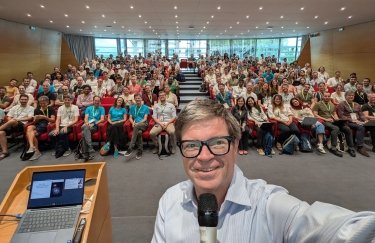Confederation politicians announced on Tuesday that they will submit a bill to the Sejm in the coming weeks to completely eliminate the reprographic fee. Polish law has no place for such a fee, argued the group's deputy spokesman, Wojciech Machulski.


Last week, the Ministry of Culture and National Heritage launched a 30-day public consultation on a draft amendment to the regulation on reprographic fees. The list of so-called “blank media” has not been updated since 2008, and to date, it includes media such as VHS, MP3, fax, and DVD recorders. By updating the list to include devices such as smartphones and tablets, artists are expected to receive an additional PLN 150-200 million annually. The fee is a way to reward creators for allowing their works to be legally copied for personal use, such as at home. Thanks to the fee, artists, writers, and musicians receive some compensation for private copying of their works.
During Tuesday's conference in the Sejm, Confederation politicians argued that there is no place for such a fee in Polish law. “Such a fee is based on the absolutely scandalous assumption that all users of such devices are thieves,” Machulski said.
He argued that many people use similar devices to work without accessing cultural texts at all. “It's completely absurd that these people should be subject to this type of reprographic fee,” he added.
According to Machulski, the money will go to “completely archaic” organizations such as ZAiKS, ZASP or the Polish Filmmakers Association, which have been “ruled by cronies for a long time.”
“We expect the new Minister of Culture, Marta Cienkowska, to withdraw this unfavorable draft amendment to the regulation, but the Confederation will also submit a bill in the coming weeks to completely eliminate the reprographic fee,” he announced. He added that the days of piracy are “absolutely behind us.”
The Ministry of Culture and National Heritage wants to balance the trade in devices with extended functions, realign the fees by introducing a 1% fee for all new devices and lowering it to a maximum of 2% for other devices, and simplifying the system by, among other things, reducing the number of devices and media covered by the fee from 65 to 19. It also proposes collecting the fee directly from device manufacturers and importers.
European Union law requires such compensation for artists, but there is no single mandated form. In Poland, this mechanism has been in place since 1994. It was last updated in 2008, when notebooks, pocket video cameras, and e-book readers were becoming increasingly popular. (PAP)
from/ rbk/





